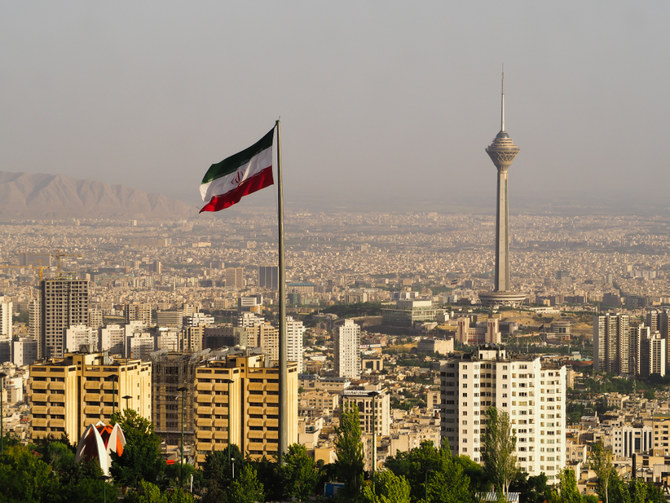WASHINGTON: The National Council of Resistance of Iran in the US on Wednesday urged American authorities and the wider international community to stand firm against the regime in Iran and its efforts to develop a nuclear weapon.
The call came during a conference in Washington organized by the council. The speakers included a number of American former political and military leaders who called for support for regime change spearheaded by the Iranian people.
They also argued that the administration of President Joe Biden is making a critical mistake in negotiating with Iranian authorities over a possible revival of the 2015 Joint Comprehensive Plan of Action, also known as the Iran nuclear deal, without leveraging the power of the US military capability to strike against Iranian nuclear facilities. The US, under President Donald Trump, unilaterally withdrew from the JCPoA in 2018.
Wednesday’s conference was organized to examine Iran’s current nuclear agenda on the 20th anniversary of the NCRI press conference in Washington that revealed to the world the existence of a secret Iranian nuclear program at the Natanz and Arak nuclear facilities.
The speakers included John Bolton, a former US national security advisor and ambassador; Gen. Chuck Wald, former deputy commander of US European Command; Robert Joseph, former undersecretary of state for arms control and international security; Joe Lieberman, a former senator; Olli Heinonen, a former deputy director general of the International Atomic Energy Agency; and Alireza Jafarzadeh, deputy director of the NCRI’s Washington office.
Jafarzadeh said that the Iranians will never abandon their nuclear ambitions because they see the program as a way to guarantee the survival of the regime and deter any potential foreign attack or military intervention. He urged the US government to support the Iranian people in their push for change in Tehran.
“The solution is a regime change by the Iranian people and replacing (the regime) with a democratic republic,” he said.
Bolton echoed Jafarzadeh’s sentiments and said the Iranian regime has lied for 20 years about its nuclear program. There will be no peace or security if it remains in power, he added.
“The key is the Iranian people, who are a threat to the regime,” Bolton said.
Wald said the US and Israel have carried out a lot of planning in the past 20 years in case it is decided that Iranian nuclear sites must be attacked.
He pointed out that all the previous and current negotiations with the regime have failed to halt its nuclear program and said the US government must make it clear to Tehran that it has the military capability and political will to strike the nuclear facilities.
“The Islamic Revolutionary Guard Corps must stay on the (US government’s) Foreign Terrorist Organizations list, as well as placing the issue of Iran’s ballistic missiles on the negotiating table,” he added.
Arguing against the current round of negotiations with Iran, Joseph said that Tehran has stepped up its nuclear program while also building ballistic missiles, it provides support for terrorist groups and has carried out repression of the Iranian people since signing the 2015 nuclear deal.
“The key here is the Iranian people,” he said. “It’s the greatest threat to the administration. At the minimum, we shouldn’t stand in the way of people who seek democracy, basic human dignity and human rights.”
Joseph added that when Iran considers its nuclear weapons program it thinks of the fate of former Libyan leader Muammar Gaddafi, who surrendered his country’s nuclear program and “eight years later he is dead in a ditch.”
He said said Iran’s breakout time — the term for how long is required to produce enough fissile material to develop a nuclear weapon — can now be measured in weeks.
“My view that Iran is a virtual nuclear weapons state” he added.

























